Brand Lessons From China’s Coronavirus Experience
Plus: Patriotic cheese tea, and Cardi B as the unlikely voice of diplomacy
The global uncertainty resulting from the coronavirus pandemic may well create a very different future for brands and consumers. We at Content Commerce Insider have closely followed China’s experiences over the past two months, which are worth sharing as they provide an outline of what this future may look like, though it remains critical for brands to remain sensitive to the differences in consumer concerns and needs across markets.
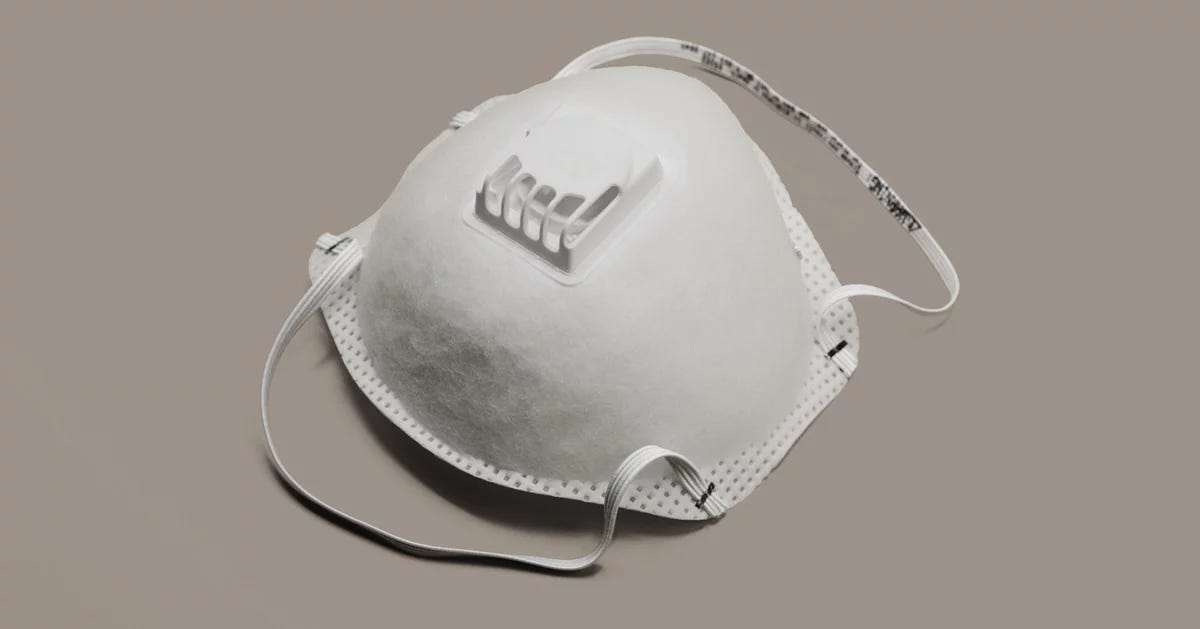
The Chinese government’s widespread restrictions on movement and nationwide shutdown were less of a shock to the economy as they occurred on January 24, the eve of the Lunar New Year holiday, by which point most people who were planning to travel had already returned to their hometowns, and businesses across the country were closing for at least a week during the holiday. The central government officially extended the holiday by another week, while many local governments put in place additional restrictions or work-from-home orders, and corporate employers followed suit with remote working through at least mid-February, with the virus apparently coming under control by early March.
While China appears to have won a reprieve in the fight against the virus, its duration — along with the accuracy of reported statistics — remains to be seen. Retail outlets such as Starbucks and Apple stores appear confident enough to reopen, even as they are shuttered across the United States, and there is a gradual return to public life taking place in many parts of the country — a “new normal,” so to speak.
Over the coming editions of the newsletter, we will present a series of actionable takeaways for brands as they navigate the upheaval to society at all levels and prepare for what’s ahead both in the short term and after the current crisis has receded.
We begin with the first step major brands took to address the coronavirus epidemic: taking action.
Actions Speak Louder
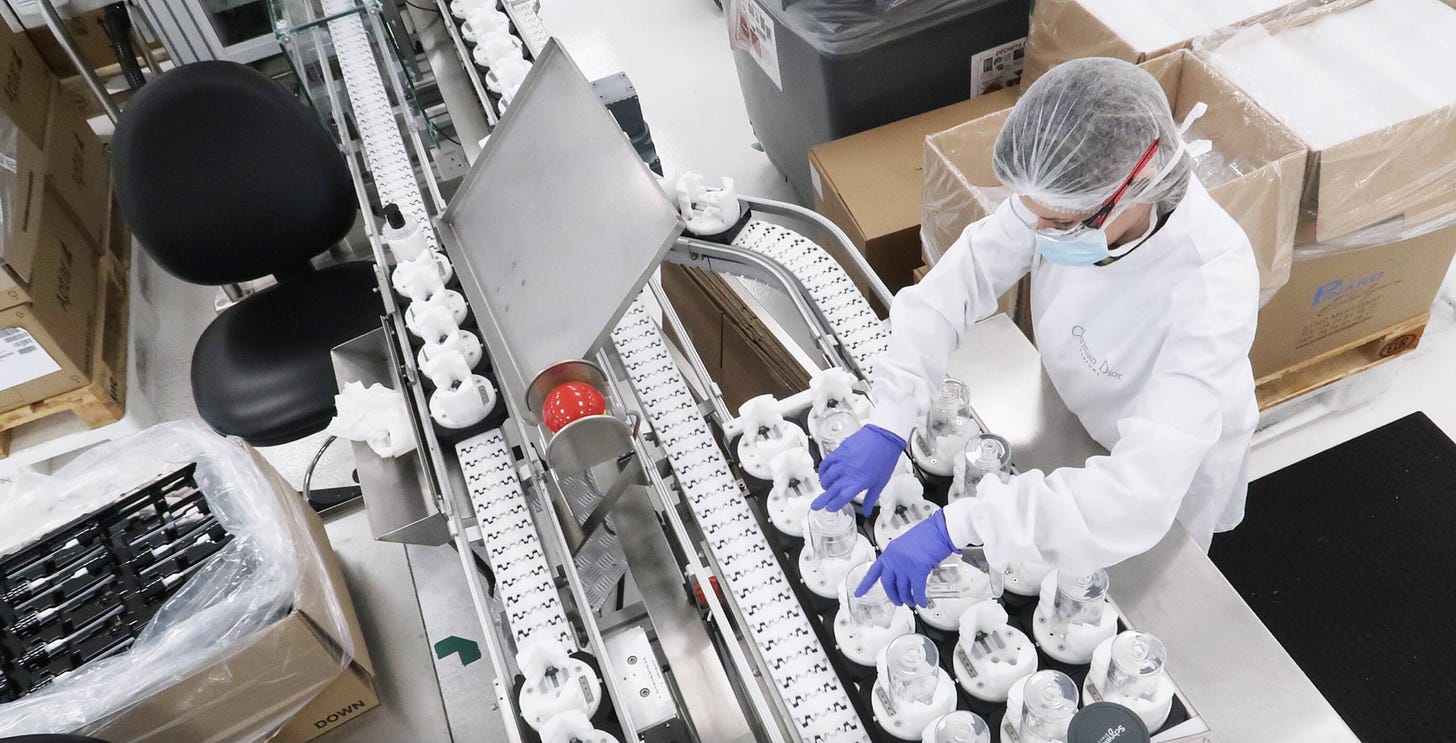
The early response from brands in China was rapid mobilization to donate money and supplies, particularly to support relief efforts in the outbreak’s epicenter of Wuhan, and heavily publicize these charitable efforts.
Alibaba led the ranks by committing RMB 1.1 billion ($160 million) to a fund for medical supplies, while Tencent and Baidu each donated RMB 300 million ($43.2 million), which they were eager to publicize. American tech firms appear significantly less generous in comparison: Amazon has reportedly set aside $31 million to various initiatives to date, Facebook has pledged up to $20 million in matching donations (plus its stockpile of more than 700,000 face masks), while Apple has donated $15 million globally (including China) and introduced a two-to-one employee matching program.
Numerous foreign firms with major business in China were also quick to offer aid, with luxury brands among the most prominent. On January 27, just days after the nationwide lockdown was ordered, French conglomerate LVMH Moët Hennessy issued a press release announcing a RMB 16 million (US$2.3 million) donation to the Chinese Red Cross Foundation and planned to gather supplies in Europe to send to Wuhan, while on the following day rival Kering Group — parent of Gucci, Saint Laurent and Balenciaga, among others — pledged RMB 7.5 million ($1.1 million) to the Hubei chapter of the Red Cross Foundation.
Other major foreign donors who drew kudos for their generosity included Nestle, L’Oréal, Dell, Microsoft, PepsiCo, Shell, Procter & Gamble, and Estée Lauder.
Dao Nguyen, founder of marketing consultancy Essenzia, told Jing Daily that “generating ’emotional engagement’ goes both ways…Brands who are able to promptly voice support and act on it demonstrate sincere empathy and care. It can go a long way to fuel mutual understanding and bonding.”
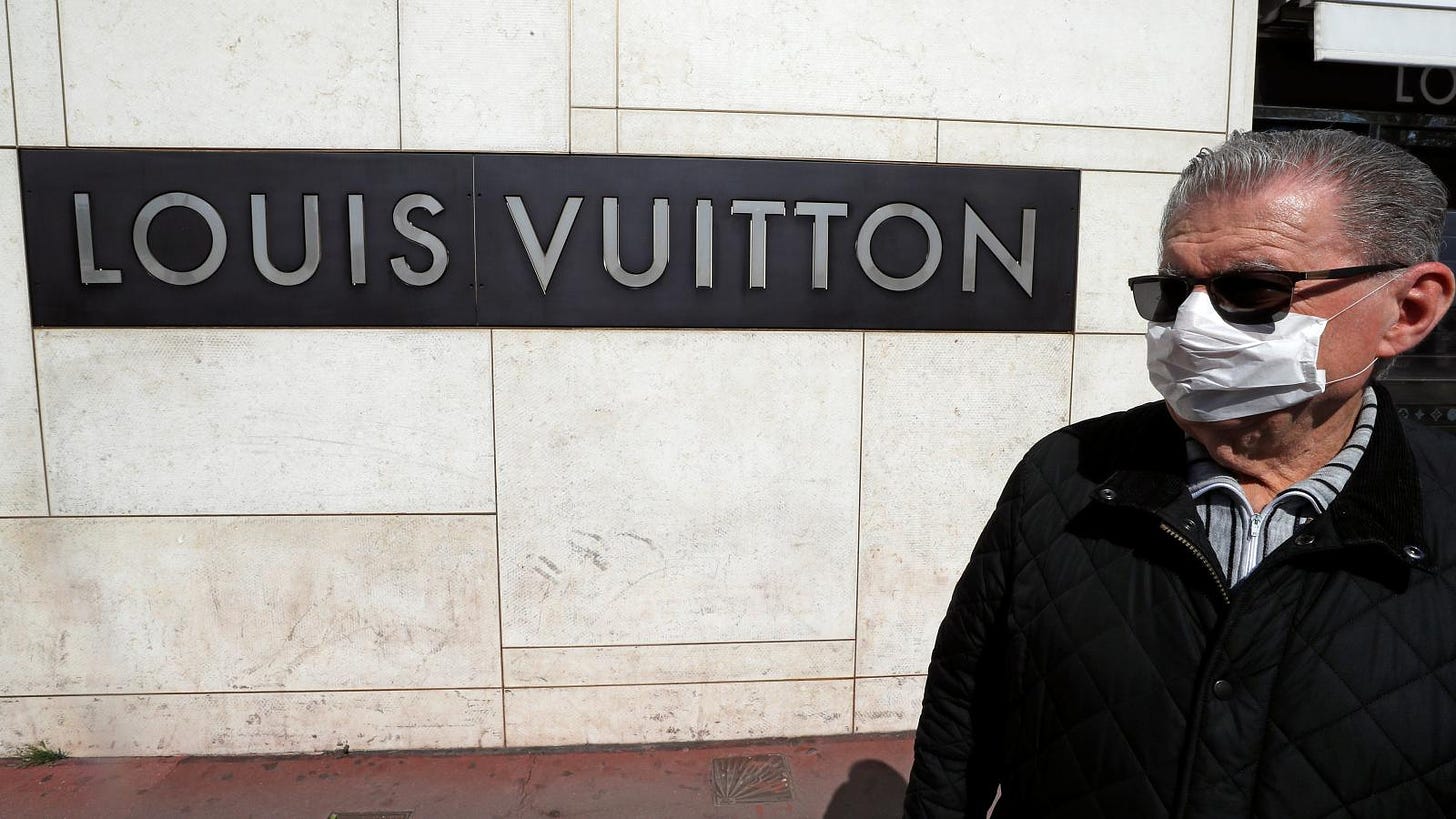
LVMH is a notable example of a luxury conglomerate that has continued to engage emotionally by rapidly addressing consumer needs outside of China. Addressing critical shortages in its home country, the company has turned its perfume and cosmetics factories into manufacturers of hand sanitizer and promised to provide at least around 40 million masks sourced from China.
And as the rest of the world struggles to contain the Covid-19 pandemic, Alibaba’s brand has been gaining global recognition for the large-scale and well-publicized charitable efforts of the Alibaba Foundation and the Jack Ma Foundation, established by its founder (Ma stepped down from the company last year to focus on nonprofit work). The two organizations have promised aid to dozens of countries around the world, including every African nation, and plan to send one million face masks and 500,000 coronavirus test kits to the U.S.
Mentioned in today’s newsletter: Alibaba, Amazon, Apple, Baidu, BigEve, Dell, Estée Lauder, Facebook, Kering Group, L’Oréal, LVMH Moët Hennessy, Microsoft, Naixue Tea, Nestle, PepsiCo, Procter & Gamble, Reebok, Shell, Starbucks, Tencent, Tmall, WeChat
Branding a Comeback, With a Little Help From a Beauty Influencer and Tmall
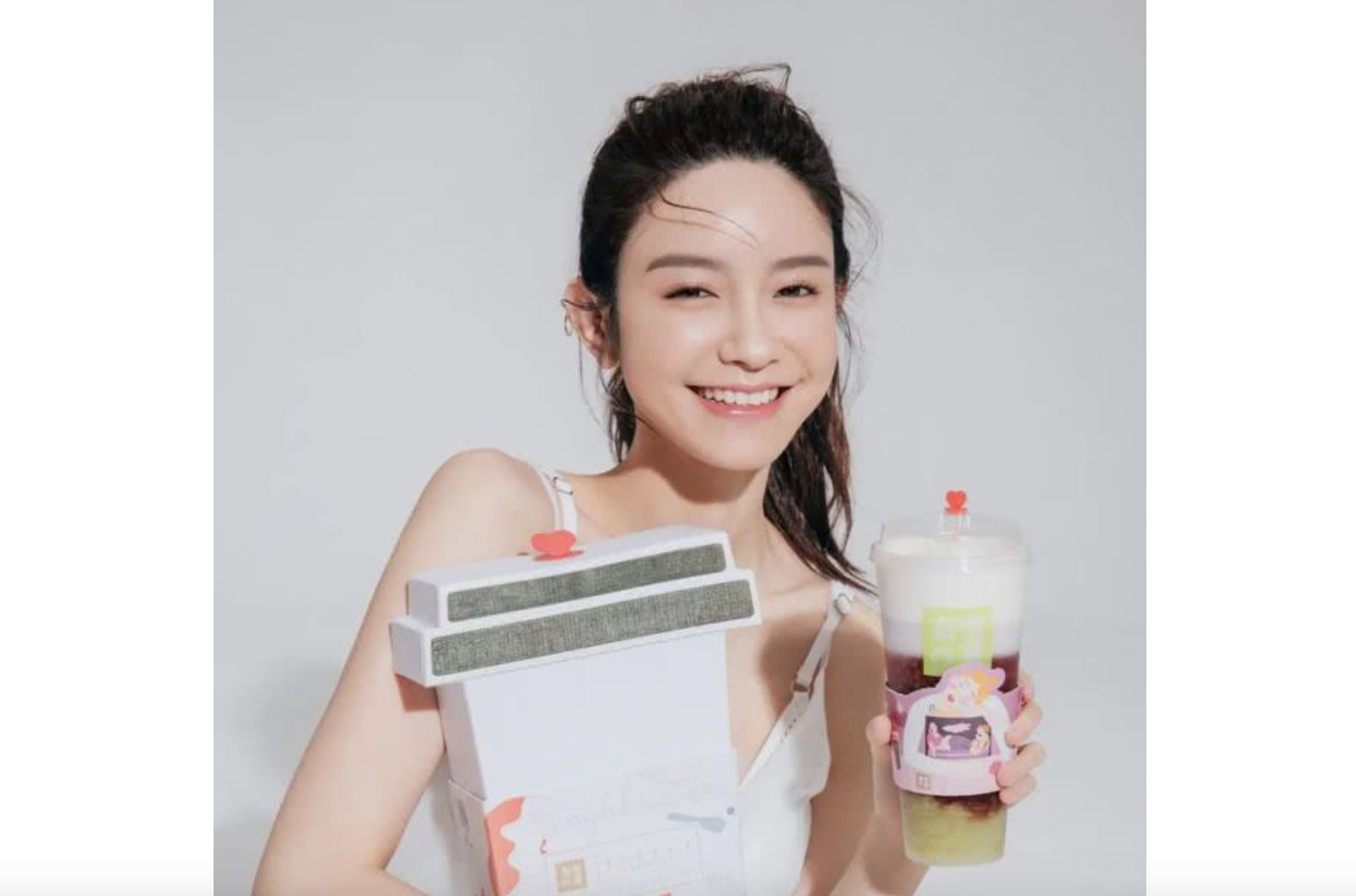
The upscale tea chain Naixue Tea (also known as Nayuki) would be among those that took a big hit from the winter’s coronavirus outbreak, which coincided with what should have been a busy holiday season. But the brand is getting a boost from recent marketing collaborations that are building on its trendy homegrown image and reputation for healthy products, both of which are in greater demand in the aftermath of Covid-19.
Naixue was part of Tmall’s recent spring campaign to support “guochao” (aka national trend) products, which promoted new products from more than 50 fashionable and distinctly Chinese brands. Working with a palette of four colors inspired by solar terms used in traditional Chinese calendars, Naixue created a line of themed drinks along with peripheral items such as collectors’ cards by artist Cinyee Chiu and drinking glasses with a “foam” design that mimics the appearance of Naixue’s signature “cheese tea” beverages.
Through its social media campaign, Naixue encouraged consumers to use the glasses to enjoy tea at home, and offered local delivery services through Alibaba affiliates Koubei and Ele.me, also acknowledging that many people may prefer to continue staying in for the time being.
In another innovative partnership, Naixue teamed up with e-commerce livestreamer Zhang Dayi and her BigEve beauty brand to combine their reach among the millennial and Gen Z fans of the two. The two brands created a gift box — in the shape of a to-go cup — filled with a limited edition cleanser, facial scrub, body wash, and Naixue drink vouchers.
Zhang’s March 21 livestream launch on Taobao sold nearly 3,000 sets in the first second, and more than 10,000 units by the end of the broadcast, with more products to be offered via social e-commerce channels.
Cardi B’s Support for China Wins Fans
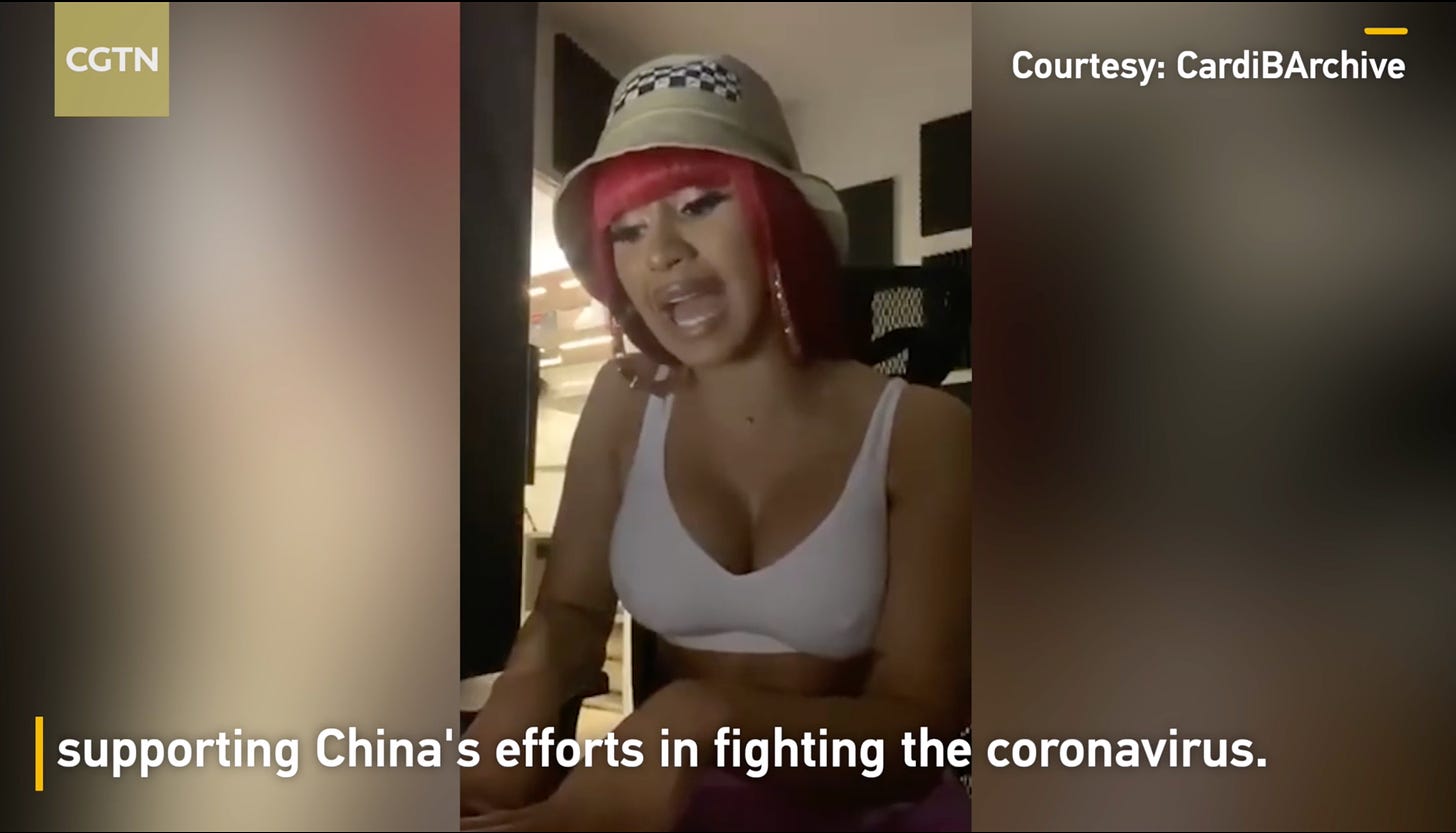
Amid the global pandemic and increasingly ugly tensions between the U.S. and China over the origins of the coronavirus and the repeated use of the term “Chinese virus” by the American president, performer Cardi B has emerged as the unlikely voice of diplomacy thanks to her impassioned Instagram video commentaries on the coronavirus.
On March 14, she shared a video of herself, apparently amazed that one of her livestream clips was picked up for a news segment on Shenzhen TV, and the Weibo hashtag “Cardi B flaunts herself making it onto Chinese news” (#CardiB炫耀自己登上中国新闻#) has taken off, drawing more than 160 million views. In the full video, she talks about China’s power, not wanting to offend the Chinese and the problems of xenophobia, and her latest video offers a relatively sober plea to stop with the racism: “Ask yourself this: Do we really want smoke, do we really want beef with China?”
While Cardi B has worked with major brands in the U.S. such as Pepsi and Reebok, beauty and fashion labels — with notable exceptions such as Fashion Nova — have seen her as a riskier prospect, but perhaps her newfound admiration among young Chinese will help to change that.
Brand Film Pick: Chanel Repurposes a Perfume Film

Last year, Chanel released a series of short films on the craft and creativity behind its century-old perfume business titled “Chanel Parfumeur.” Though originally narrated with English-language voiceovers, the third installment of the series, “I Am a Craft,” was recently released in a Mandarin-language version featuring the voice of Ma Sichun, one of the brand’s celebrity ambassadors for China.
The film, which describes the work of house perfumer Olivier Polge, was voiced in the English version by French actress Anna Mouglalis, who may not have made much of an impression on Chinese audiences unfamiliar with her, while Ma has been appearing in films and television series since 1995, when she was seven years old.
As the final episode in a three-part series, “I Am a Craft” connects the narratives of the first two films: “I Am an Idea,” featuring Vanessa Paradis describing the brand’s identity and sources of inspiration, and “I Am a Nose,” in which Polge recounts his early love of music, its relationship to perfume and his decision to follow in his father’s footsteps at the French luxury house.
The Chinese version of “I Am a Craft” was released on Weibo in its entirety, where it has been viewed nearly 200,000 times since March 17. The other films were teased with 15-second trailers that linked to the page on Chanel’s China website with the full videos.
Why Luxury Brands Should Dive Into China’s Private Traffic Pool
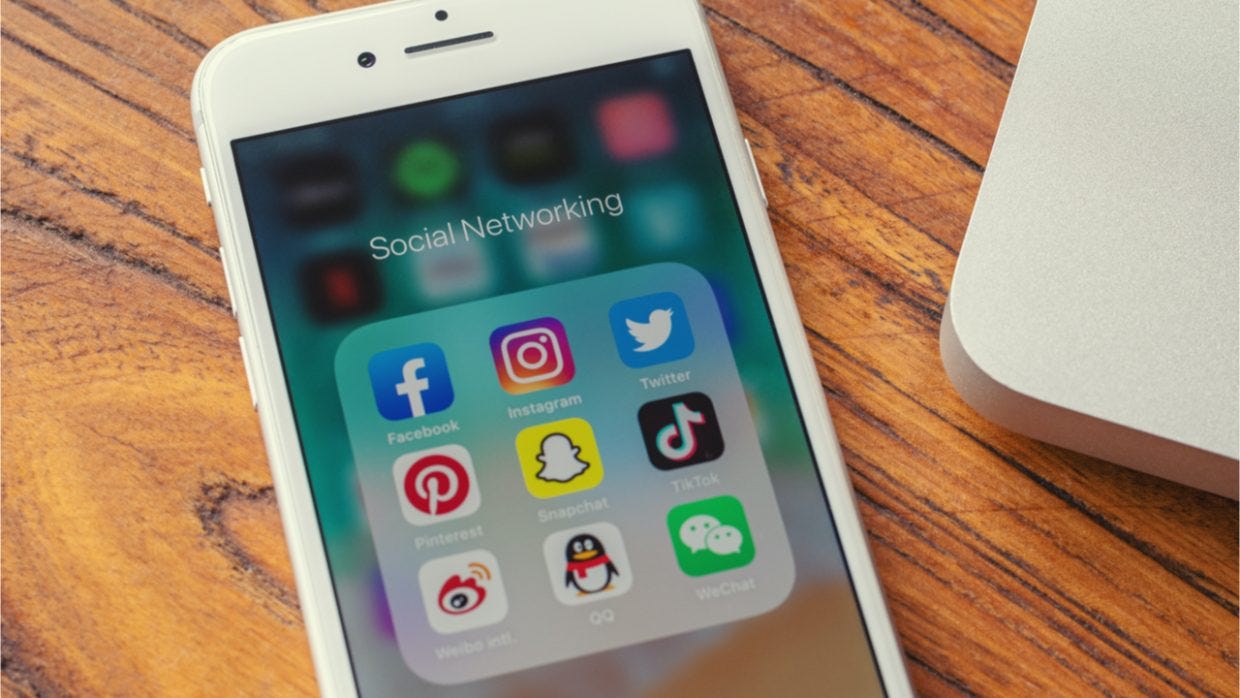
From our sister site, Jing Daily
Over the past year, “private traffic” has emerged as a buzzword in Chinese marketing circles. While most brand communications take place on public platforms owned by third parties, activity in the private domain may be more valuable, especially for luxury brands. Outside of China, private traffic typically involves email lists and websites, but since those are less effective in China, WeChat has emerged as the fundamental route.
Private traffic became even more relevant since the Covid-19 outbreak started. With stores shuttered and brands reluctant to engage in large splashy promotional activity in public, it became necessary to find other ways of staying in touch with consumers to encourage e-commerce sales and offset the losses from retail closures.
WeChat Moments emerged as a key player for luxury labels by allowing users to personalize their shopping environments and engage with sales assistants who regularly shared detailed information on available products along with prices and multiple photos from various angles. Even very low-key brands such as Goyard engaged in the practice.
Read the full story on Jing Daily
News in English
Can another Chinese-owned short video platform challenge TikTok’s dominance in the U.S.? Likee will try to find out. Bloomberg
Meanwhile, TikTok has established a high-profile committee to assuage concerns about data security and content issues as it faces a regulatory investigation in the U.S. Caixin
Douyin has introduced a group-buying feature, making it super easy to create low-commission online stores to help merchants affected by Covid-19. Pandaily
“No contradiction between technology and community.” It’s hard to believe that just a few years ago, L’Oreal struggled to connect with consumers in China. The brand’s chief digital officer explains how things were turned around. The Drum
Mini programs continue to surge, reaching 3.9 million, with 450 million daily active users. By way of comparison, Apple has had a cumulative 2.6 million mobile apps over the past 11 years. China Internet Watch
Alibaba Pictures is taking control of a struggling reality-show production company to boost offerings available on the Alibaba-owned streaming platform Youku. Variety
Song requests and virtual tours are among the livestreaming tactics property firms are using to drum up sales in a dire market. SCMP
After taking off among Chinese buyers during the recent Paris Fashion Week, will digital showrooms go global? Business of Fashion
Miu Miu launched its flagship Tmall store just ten days after Prada’s long-awaited debut on the platform, and both brands are working with a virtual idol they’ve christened Aimee. WWD
We’ve Got China Covered
China Film Insider: More than 500 Cinemas Reopen in China as New Virus Cases Near Zero
Jing Daily: How Brands Must Change For A New World Order
Jing Travel: The Jing Travel WeChat Index: February 2020
Thanks for reading, and please make sure to stay safe out there. We will be back on Thursday. In the meantime, if you enjoy what we’re doing at CCI, please share with a friend or colleague!


